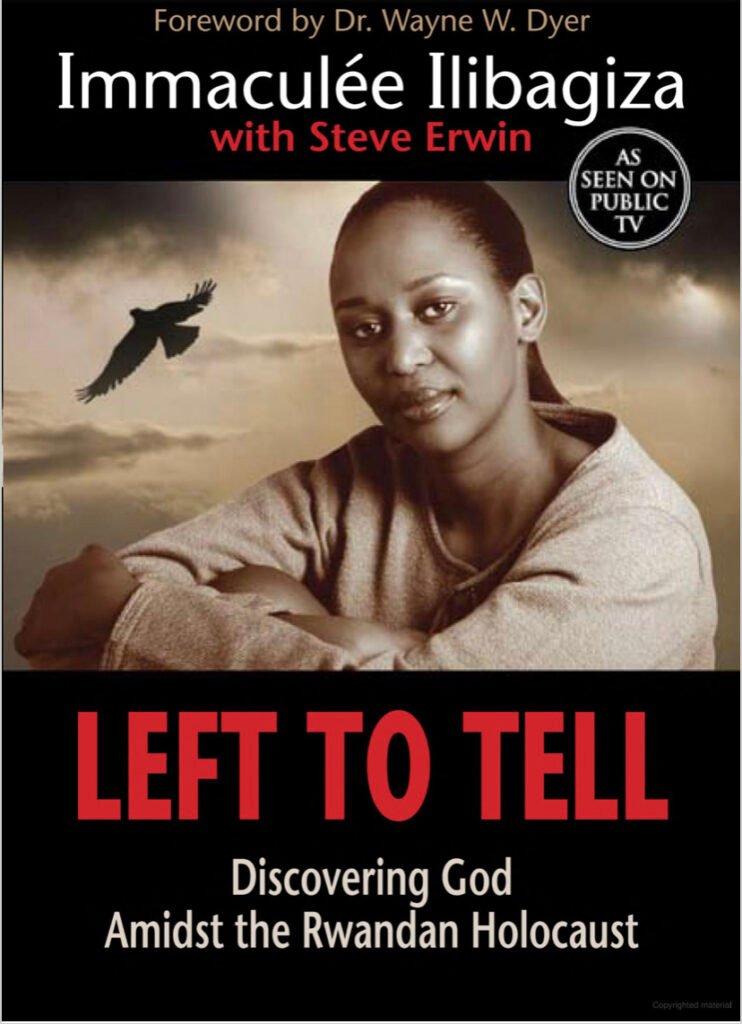
Immaculée Ilibagiza, born on April 14, 1972, is a Rwandan woman whose life story is nothing short of incredible. She survived the 1994 Rwandan Genocide by hiding in a tiny bathroom with seven other women—for 91 days. Today, she’s not only a survivor but also a bestselling author and a powerful motivational speaker whose message has touched millions around the world.

A Journey Through Pain, Prayer, and Purpose.
Back in 1994, Rwanda faced one of the darkest chapters in its history—a heartbreaking genocide that lasted 100 days and claimed nearly a million lives. It was a time when fear, pain, and division ran deep, with many people losing their lives at the hands of their own neighbors. Immaculée Ilibagiza was just a young university student then, and because she was Tutsi, she became a target.
But her story didn’t end there. Against all odds, she survived—and what’s even more powerful is how that painful season became the beginning of a life-changing journey of faith, healing, and transformation.
When the genocide began, Immaculée’s father urged her to run to a nearby pastor’s house for safety. What she didn’t know was that she’d be hiding in a 3-by-4-foot bathroom with seven other women—for 91 days.
Yes, you read that right.
Eight women. One tiny bathroom. No sunlight. Barely any food. And silence, always silence.
Can you imagine?
The horror outside was relentless—she could hear the killers calling her name, searching house to house with machetes. Yet somehow, she wasn’t found. It was a physical hiding place, yes—but for Immaculée, it became something more: a sacred space where her faith in God was tested, stripped down, and reborn.
At first, fear and anger consumed her. She prayed, but it felt empty. She wrestled with questions we all ask in our darkest moments:
“Where is God in this?”
“Why me?”
“How can I ever forgive this?”
But day by day, something started to shift.
She turned to the rosary, praying it countless times, clinging to each word like a lifeline. Slowly, the bitterness began to melt. The anger turned into surrender. The fear transformed into peace.It didn’t happen overnight—but over those 91 days, God met her in that bathroom. Not with loud answers, but with quiet strength. With supernatural peace that didn’t make sense and the grace to survive the unthinkable.
After the genocide ended and she emerged from hiding—physically frail but spiritually strong—Immaculée faced a new challenge: forgiveness.
Her parents, brothers, friends… they were gone. Killed. And yet, Immaculée chose to forgive the very people who murdered them.
Not because they deserved it, but because she didn’t want to live with hate. She once said, “Forgiveness is all I have to offer.” That simple, yet powerful choice set her free.
Immaculée Ilibagiza didn’t just make it through the horrors of the Rwandan genocide—she came out on the other side with a deep, unshakable faith and a heart determined to share light where there was once only darkness.
Her story isn’t just a powerful piece of history—it’s a living, breathing reminder that even when life feels shattered beyond fixing, God is still able to rebuild something beautiful. Her journey is proof that redemption is always possible, no matter how deep the pain runs.
Today, she travels the world sharing her story—not to relive the pain, but to spread a message of healing, peace, and unshakable faith with her book Left to Tell.

Takeaways?
Whether you’re going through heartbreak, loss, or just feeling spiritually stuck, Immaculée’s story reminds us that:
- God is closest in the silence. Even when we don’t “feel” Him, He is present.
- Prayer can shift your mindset, even if your situation doesn’t change.
- Forgiveness isn’t weakness—it’s freedom.
- Our greatest pain can become your greatest testimony.


